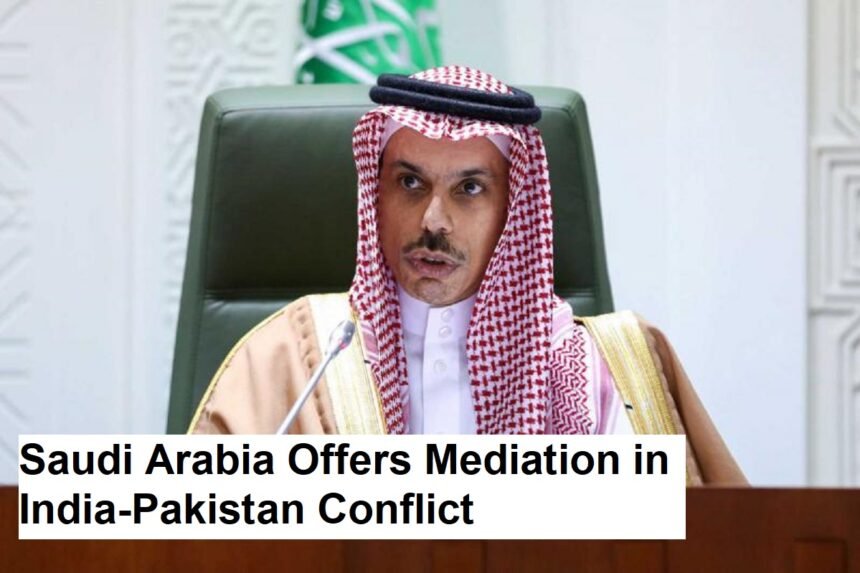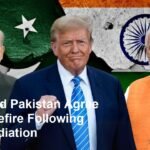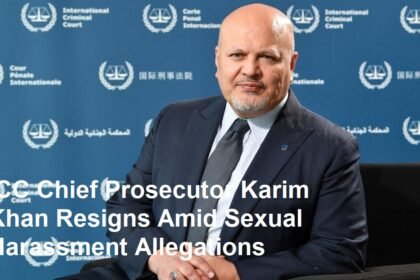On May 2025, Saudi Arabia’s Foreign Minister, Prince Faisal bin Farhan, made a significant diplomatic move by offering to mediate the ongoing conflict between India and Pakistan. This offer came through direct communication with his counterparts in both countries, signaling Saudi Arabia’s willingness to play a constructive role in easing tensions between the two nuclear-armed neighbors. The announcement reflects Saudi Arabia’s broader commitment to regional security and stability, as well as its balanced diplomatic relations with both India and Pakistan.
The India-Pakistan conflict has been a long-standing and complex issue, rooted in historical, political, and territorial disputes, most notably over the Kashmir region. Since the partition of British India in 1947, the two countries have fought multiple wars and engaged in numerous skirmishes, with tensions frequently escalating into military confrontations. Both nations possess nuclear weapons, which adds a critical dimension of risk to any conflict escalation. Over the years, various international actors have attempted to mediate peace talks, but a lasting resolution has remained elusive.
Saudi Arabia’s offer to mediate is particularly noteworthy given the kingdom’s strategic position in the Muslim world and its growing diplomatic influence on the global stage. Traditionally, Saudi Arabia has maintained close ties with Pakistan, rooted in religious, cultural, and military cooperation. At the same time, the kingdom has developed increasingly strong economic and political relations with India, especially in areas such as energy trade, investment, and counterterrorism cooperation. This balanced approach allows Saudi Arabia to act as a credible and neutral mediator, trusted by both parties.
Prince Faisal bin Farhan’s outreach to the Indian and Pakistani foreign ministers underscores Saudi Arabia’s desire to contribute positively to regional peace. In his communications, he emphasized the kingdom’s commitment to maintaining security and stability in South Asia, a region whose peace is vital not only for the countries involved but also for global economic and geopolitical stability. The Saudi Foreign Minister highlighted the importance of dialogue and diplomacy in resolving disputes and expressed hope that his country’s mediation could help bridge differences and foster a ceasefire or peace agreement.
The offer also reflects Saudi Arabia’s broader foreign policy goals. As a leading member of the Gulf Cooperation Council and a key player in the Middle East, Saudi Arabia seeks to expand its diplomatic footprint beyond its immediate neighborhood. By positioning itself as a mediator in one of the world’s most sensitive conflicts, the kingdom aims to enhance its international standing and demonstrate its capacity to contribute to global peace efforts. This move aligns with Saudi Arabia’s Vision 2030 strategy, which includes strengthening diplomatic ties and promoting regional stability.
The potential impact of Saudi mediation on the India-Pakistan conflict could be significant. If accepted, Saudi Arabia’s involvement might open new channels of communication and reduce mistrust between the two countries. Mediation by a respected and neutral party could facilitate negotiations on contentious issues such as border disputes, cross-border terrorism, and trade relations. Moreover, Saudi Arabia’s influence in the Muslim world could help address concerns within Pakistan’s political and military establishments, potentially easing hardline positions.
However, the success of this mediation effort depends on several factors. Both India and Pakistan have historically been cautious about third-party involvement, often preferring bilateral talks or involving established international actors like the United Nations or the United States. Additionally, deep-rooted mistrust and domestic political pressures in both countries could pose challenges to any peace initiative. Saudi Arabia will need to navigate these complexities carefully, ensuring that its mediation is perceived as impartial and constructive.
The offer also comes at a time when the international community is increasingly concerned about the risks of escalation between India and Pakistan. Recent incidents along the Line of Control and heightened rhetoric have raised fears of renewed conflict. In this context, Saudi Arabia’s proactive approach could provide a timely opportunity to de-escalate tensions and promote dialogue.
In conclusion, Saudi Foreign Minister Prince Faisal bin Farhan’s offer to mediate the India-Pakistan conflict represents a meaningful diplomatic initiative aimed at fostering peace and stability in a volatile region. By leveraging its balanced relations with both countries and its strategic position in the Muslim world, Saudi Arabia seeks to facilitate dialogue and reduce hostilities. While challenges remain, this offer signals a hopeful step toward resolving one of the most enduring and dangerous conflicts in the world. The coming months will reveal whether this mediation effort can gain traction and contribute to a lasting peace between India and Pakistan.









